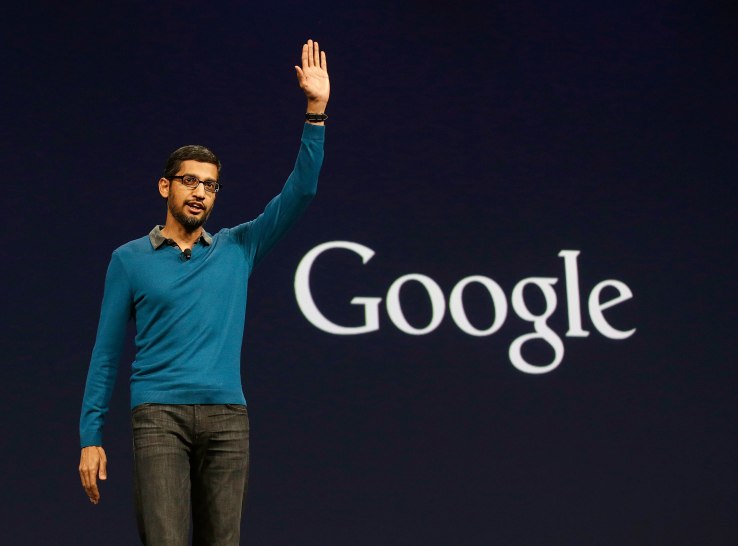
Welp, journalists got some inbox candy on a Friday from Google. An invite to an event on September 29th. What will the event be about? Is it hardware? Has to be hardware! Is it software? Has to be software! Is it…yes. It has to be that, too.
My point is that it doesn’t even matter what they launch: Google has had hundreds of product launches, and it will have hundreds more.
Whether Sundar Pichai turns up for the event will be the most important thing about September 29th. It marks the first major event since he became the CEO of Google. In fact, it’s only been about a month since that happened. The truth is, though, Pichai has been working his way up to this point for a long long time.
It’s his show, now.
We don’t know if Pichai is even going to participate in the event at the end of the month, but if you are listening Google (are you there?), I think it’s extremely important for that to happen for a number of reasons.
Strength
Google is its “own thing” now under Alphabet. If Google is announcing products of any sort at the end of the month, Pichai better be there to show the strength of this new entity.
It’ll be very important to see Pichai interact with his colleagues as the head honcho, it’ll be important to hear his words in the context of guiding the entire company for the next ten plus years.
Lack Of Larry Page Is A Plus
For a plethora of reasons, not that we know any of them in particular, Larry Page isn’t the most social CEO in tech. In fact, every single time I see Mark Zuckerberg chatting with some folks in a public setting, I feel like Google’s lack of similar interactions hurt them. Even when Eric Schmidt was CEO, he was still a businessman. Pichai is the anti-Page/Schmidt in this sense. Pichai is the product and a people person.
While we all know that Page is one of, if not the, masterminds of Google’s best years, the fact that he chose Pichai to take the helm at Google spoke volumes. He passed the baton.
Internal happiness
This is Google’s chance to show the company, and the other units under Alphabet, that all is well, everything is under control, and Pichai is the CEO for the reason. Pichai basically auditioned for this exact moment at I/O last year, where Google co-founders Page and Brin were nowhere to be found.
But hey, maybe Pichai doesn’t show up at all. Maybe he gives the stage to whomever is launching what. However, everything we’ve seen about the modest and savvy showman, tells us that he’ll seize this opportunity in his new role. There’s a lot of folks who wouldn’t mind seeing him there keeping everything moving along all Googley-like. Whatever it is they’re talking about that day.

Comments
Post a Comment